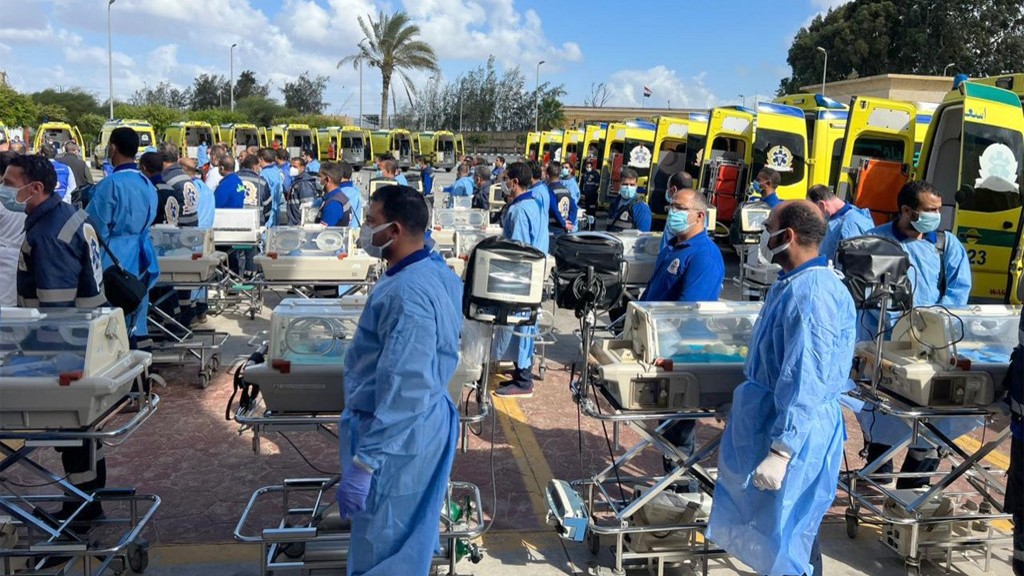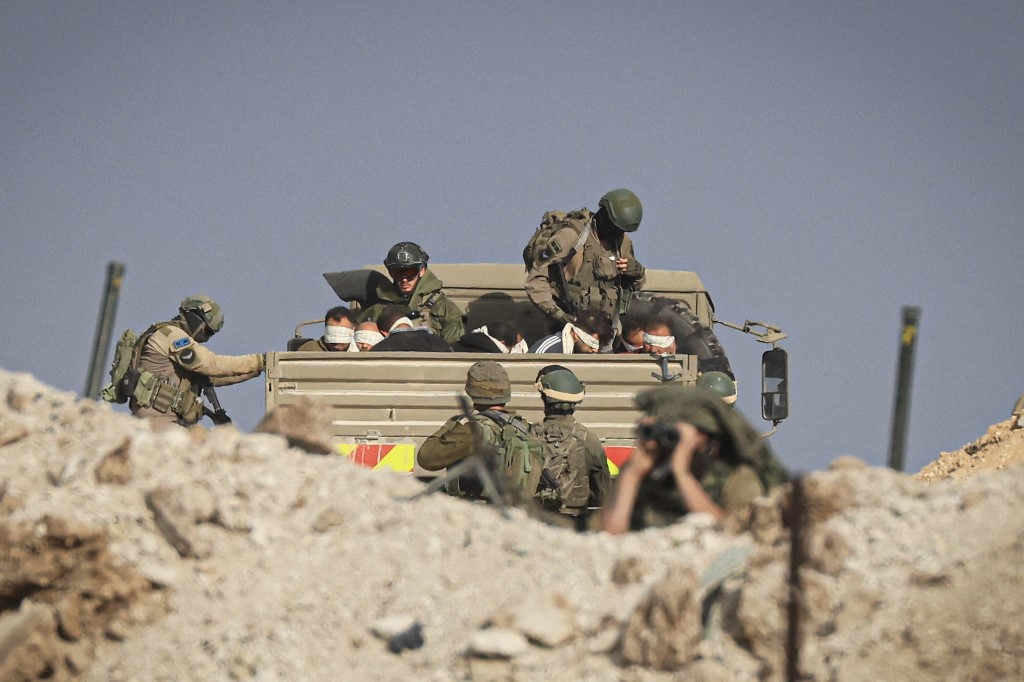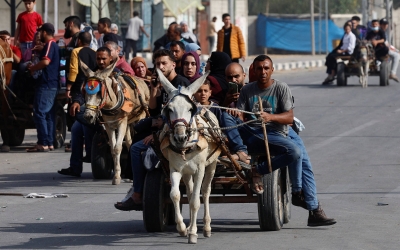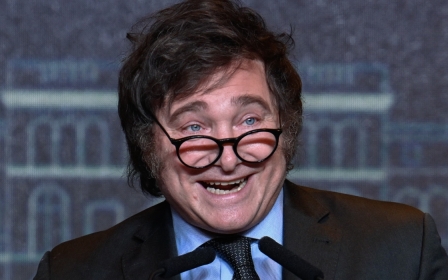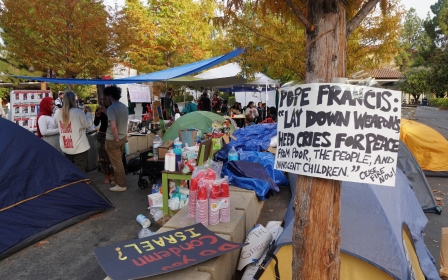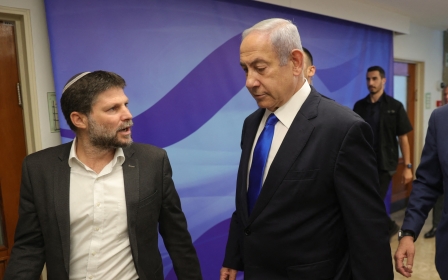Israel-Palestine: Doctor recalls 'indescribable' al-Shifa siege and expulsion
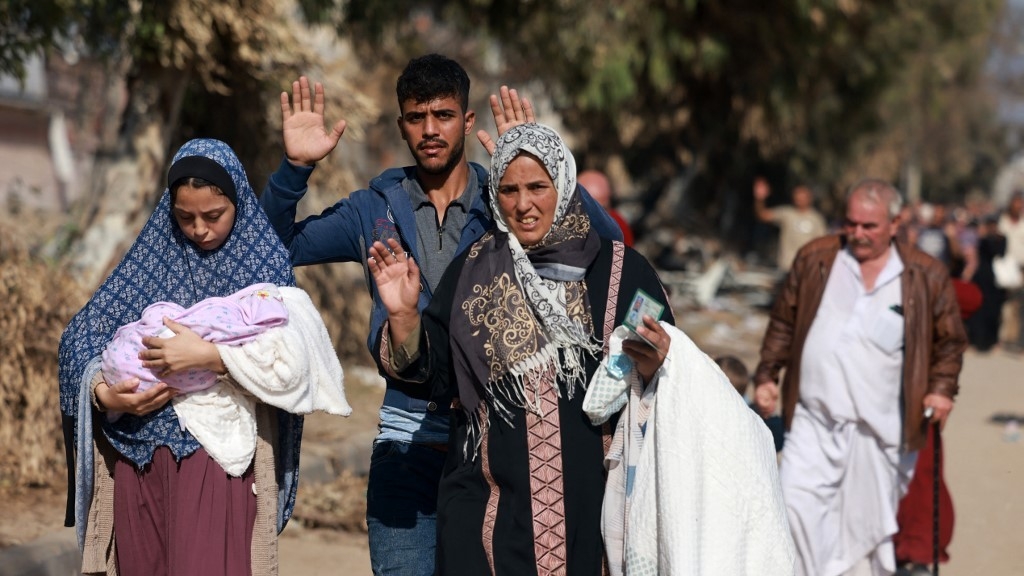
It was the 42nd consecutive day for Dr Ashraf Mohsen at Gaza's al-Shifa Hospital.
The Palestinian doctor had been working tirelessly to tend to the wounded from Israel's relentless bombing campaign.
But on Saturday morning, Israeli troops, who had been encircling and targeting the hospital for days, decided it was time for him and thousands of others inside the medical facility to leave.
"We were in the thousands," Mohsen, who worked in the recovery department of specialised surgeries, told Middle East Eye.
Israeli tanks, supported by air cover, encircled al-Shifa on 10 November, firing at anyone that moved inside the complex or tried to leave, effectively placing it under siege.
New MEE newsletter: Jerusalem Dispatch
Sign up to get the latest insights and analysis on Israel-Palestine, alongside Turkey Unpacked and other MEE newsletters
Up to 7,000 people were trapped inside without food, water or electricity, including premature babies, critically ill patients, displaced families and medical staff.
Around eight days later, Israeli army officials began calling doctors inside the hospital, ordering them to leave, according to medical staff.
The thousands of people inside were given one hour to leave, causing panic and chaos.
“They gathered us all at between 9 or 9:30am in the hospital yard. There was a military barracks all round, and soldiers were inside al-Shifa in large numbers," Mohsen, 42, said.
"Patients who could walk with crutches went on their own or on wheelchairs, along with the displaced and their families," he added.
“People carried those who couldn't walk from the upper floors.
“I don't know if intensive care patients were evacuated, but I saw the intensive care doctors with us on the way, and they were evacuated."
Follow Middle East Eye's live coverage of the Israel-Palestine war
According to the Palestinian health ministry, the majority of people were forced to leave on that day. Around 260 people remained behind, mostly patients unable to move and a handful of doctors who stayed with them.
Once out of the building, Mohsen said he could not recognise the streets due to the sheer destruction caused by Israeli shelling.
“Everything had changed. The Israeli army burned all the doctors' and staff cars next to al-Shifa,” he said.
“There were planes above, filming us, and the soldiers asked us not to go out and to raise our hands. Any movement would result in death. We were allowed to leave from Wihdeh Street to Shuja'iyya.
“There was a fleet of tanks, bulldozers, and military jeeps up to the Ailat intersection.”
At the Kuwait roundabout, they were stopped at an Israeli checkpoint for four hours “in the scorching sun” with the wounded.
“Men, women, children, and some elderly were crying," Mohsen said.
“They forced us to raise our hands and took our IDs. We entered a gate to be inspected by cameras."
Among the thousands forced to walk the long road for safety was a paralysed 10-year-old on a wheelchair with an oxygen tank.
Not too far was a doctor pushing his wounded brother on a wheelchair.
Others in critical condition were transferred on hospital beds.
"I saw a late-stage pregnant woman holding a few-month-old baby in her arms, fainting multiple times from exhaustion," Mohsen recalled.
"The scene was indescribable. We had no means of transportation. We walked hundreds of metres until we found taxi cars and donkey carts."
Over the eight-day siege imposed by Israeli ground forces around the medical complex, Mohsen said there was no water, electricity or means of communication.
“We lived on dates, canned food and water,” he told MEE.
“The salty tap water would come once a day, and we would drink it."
There was no internet, he added, or communication between the internal departments. Moving between the buildings was very dangerous, he explained.
In the absence of electricity, the hospital’s staff used solar power.
“We had small solar cells, and we would light a small bulb in each department. It worked only when there was sunlight, and at night it became pitch dark.
“That morning, the Israeli army brought water and bread, but it was too late because the evacuation happened an hour later.”
Mohsen said that during the siege, doctors could not perform complex surgeries due to the power outage. They had to perform simple operations and basic first aid.
“Some patients had worms coming out of their wounds,” he said, explaining that access to cleaning and sanitation products was complicated as movement and leaving the buildings were prohibited.
Humiliating evacuation
A displaced person who endured the al-Shifa siege, and did not provide a name, said those who were forced out on Saturday were “beaten and insulted” by soldiers.
“Some were swearing at us for no reason, for example saying ‘may your father be cursed’, ‘you are a whore’, and things like that,” he told MEE.
“While leaving, we were not allowed to look right; we were only allowed to look to the left.
"We were carrying elderly women and children."
Hammam, a nurse, said Israeli troops came to them with food and water "trying to appear humanitarian" two days before they forced ejection.
He confirmed to MEE reports that the army snatched dozens of corpses that were in the hospital's complex awaiting burial.
Another displaced person who was at al-Shifa told MEE, without providing a name, that he helped evacuate some bodies on stretchers out of the hospital on Saturday.
Patients forced out on wheelchairs
Dr Munir al-Borsh, director general of the Palestinian health ministry, told Al Jazeera on Saturday that people inside al-Shifa were forced to raise white flags as they walked in a line with Israeli tanks and soldiers on either side.
"Many of the patients were put on wheelchairs or rolling beds. Family members were forced to carry their wounded children or parents themselves," Borsh said. "These are horrible, unprecedented scenes."
Borsh was among those forced out, and had walked at least two kilometres. He said he was headed to the Indonesian Hospital to continue his work.
In a statement on Saturday morning, the Israeli military denied ordering the evacuation. It claimed instead that the director of the hospital asked for a "secure axis" to allow those sheltering in the facility to flee.
Doctors and health officials at al-Shifa strongly denied Israel's version of events.
Ismail al-Thawabta, a spokesperson for the Palestinian media office in Gaza, said that people inside were forced to leave at gunpoint.
He added that many of those fleeing were at imminent risk of death because "they require swift medical attention".
Ahmed El Mokhallalati, Irish-Palestinian head of plastic surgery at al-Shifa, said that most of the patients and medical staff left on Saturday. He, along with five other doctors, decided to stay with dozens of people, most of them ICU patients.
He said that a UN team visited the hospital on Saturday. The doctors informed them that the hospital was out of medical supplies, food, electricity and water for over a week, and that they needed to take action to evacuate the patients, he wrote on X.
The UN team, he said, replied that “no ambulance is allowed to evacuate patients from the hospitals, as Israel is still carrying out military operations around the hospital which will remain for days."
In his last post on Sunday, Mokhallalati said that Israeli forces “breached the surgical department” and stayed there for over five hours.
"Medical staff and patients endured an unwarranted investigation, resulting in humiliation. One patient was arrested."
The Israeli onslaught on Gaza has so far killed at least 13,000 Palestinians, 5,500 of them are children, according to the health ministry.
The operation began in the aftermath of a devastating incursion on 7 October by Hamas-led Palestinian combatants into southern Israel, killing 1,200 Israelis.
Additional reporting by Hind Khoudary in Gaza, occupied Palestine
Middle East Eye delivers independent and unrivalled coverage and analysis of the Middle East, North Africa and beyond. To learn more about republishing this content and the associated fees, please fill out this form. More about MEE can be found here.


